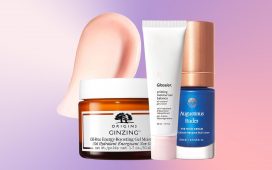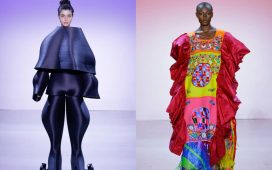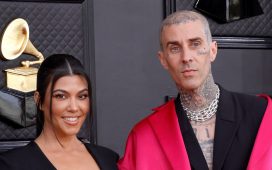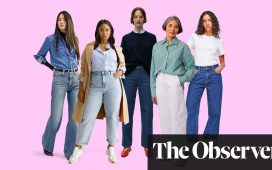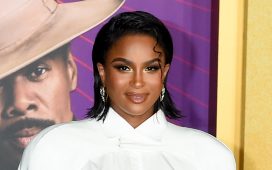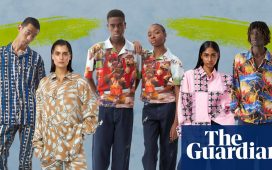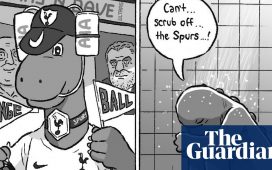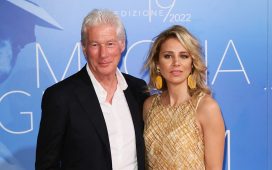From the rise of plus-size supermodel Ashley Graham to Lizzo on the cover of British Vogue, the fashion industry has embraced female body diversity in recent years. Larger male models, however, have struggled for acceptance. But at the launch of the latest lingerie collection from Rihanna’s Savage X Fenty this month, there was a step forward in the normalisation of plus-size male body types – with the show featuring Steven G, US size 2XL, modelling boxer briefs.
For the last three years the singer’s lingerie line has reset the dial on size, race and gender inclusivity, in contrast to the manicured perfection of such brands as Victoria’s Secret. This time Rihanna featured men’s underwear. Significantly, G’s images on the website did not appear in a separate “plus size” section. Screengrabs of the topless model went viral on Twitter, with users praising Rihanna’s use of larger body types. “Big men, just like women, are hardly represented in advertising but as Rihanna has proved here, the industry may want to rethink this,” tweeted author Rabia Chaudry.
Brands such as Asos and Jacamo have used bigger male models before, but they are the exception. Many hope the positive online reaction to G’s photo will be the tipping point for the plus-size male model movement. G told the Observer he had “every reaction you could think of” to the photographs. “Good, bad, hateful, humorously vulgar. But the majority was all love! An overwhelming amount of love. I didn’t imagine I would be a pioneer for a movement that has been slept on.”

G’s appearance is significant in its subtle re-tuning of the visual messages we’ve had about larger body types. As a toned Zac Efron being body-shamed for having a “dad bod” recently showed, society has very strict standards as to what a male body should look like. G said: “The message society sends to the plus-size community is ultimately to diminish your confidence until you are a decent size and then you can showcase yourself, and that’s not OK.” The internalising of these messages has an effect.
He said he thought the Savage X Fenty job was a joke at first. “I contacted my agent a few times to verify they’d actually seen me,” he says. “I even asked if I needed to send pics to check to make sure they still wanted to use me.” G says his main challenge in his career is the lack of plus-size clothes in men’s shops. “I can literally count on one hand the stores that offer “big and tall” selections. I’ve yet to see one in major retailers, especially a fashionable brand.”
It’s not the same situation for curvy women. “The plus-size market has valued the women’s lingerie sector for more than three decades,” says Charlotte Griffiths, the managing director of Bridge Models, who represent “curve and brawn” models. “It is only now we are seeing men’s bodies being celebrated in the same way.”
Rabia Chaudry says seeing G’s picture on the Savage X Fenty website made her realise “you don’t actually see plus-size men represented in fashion and modelling though they’re more commonly seen in TV, unlike plus-size women. There has certainly been a conscious movement and effort for inclusivity for plus-size women, which is why we finally see more of those images, but no equivalent movement for men.”
For G, he hopes fashion brands will now be more open to representation, “seeing brawn males are also fashion consumers”.


